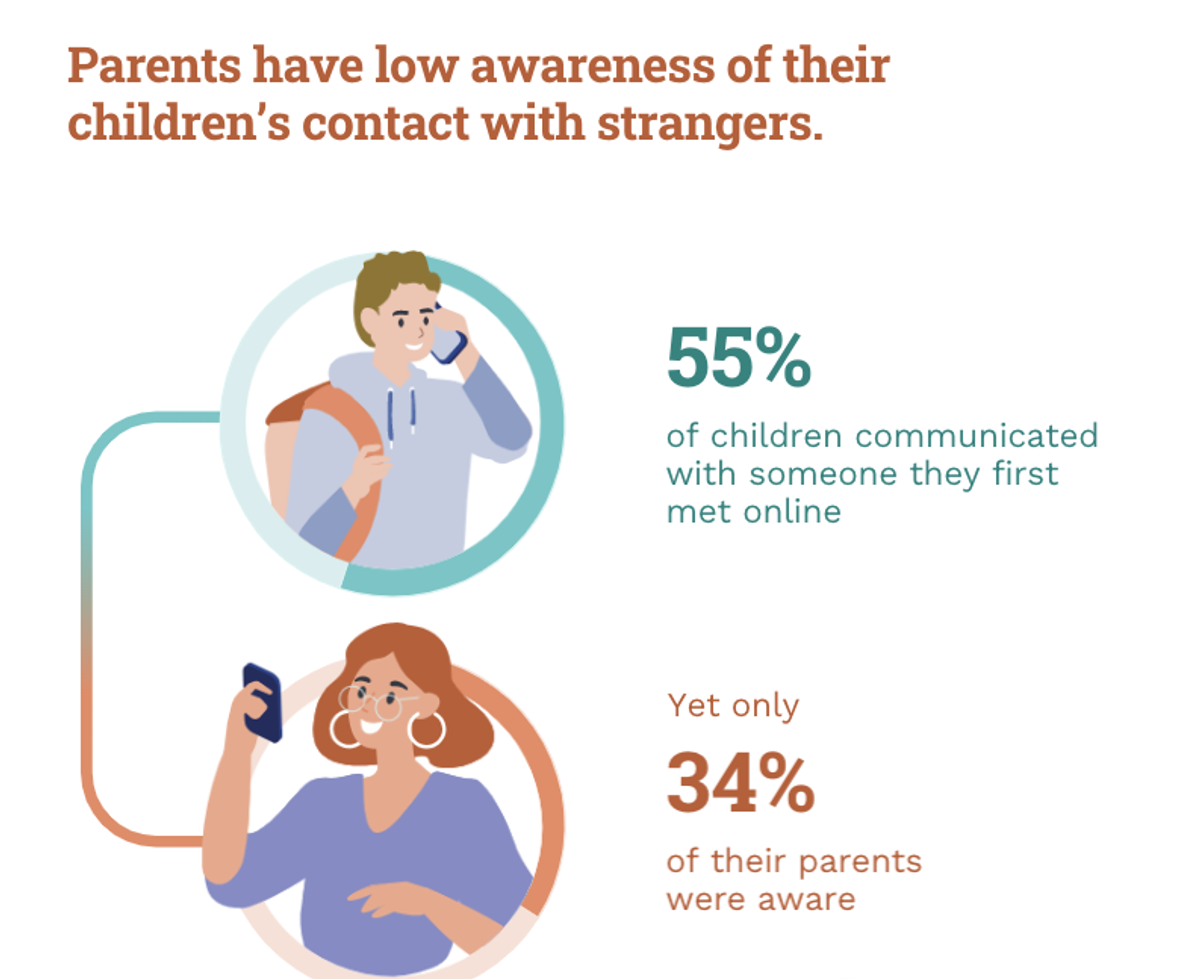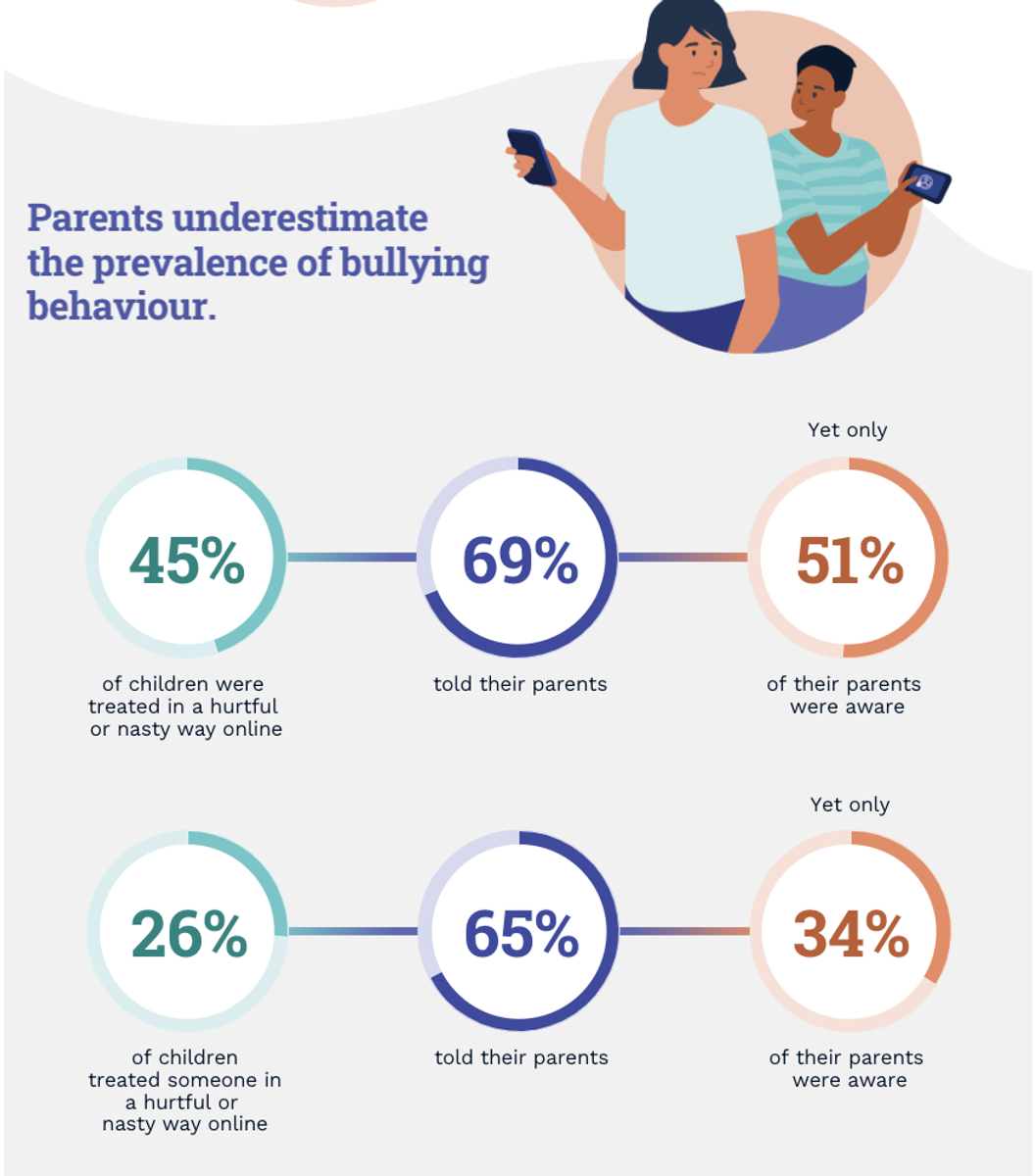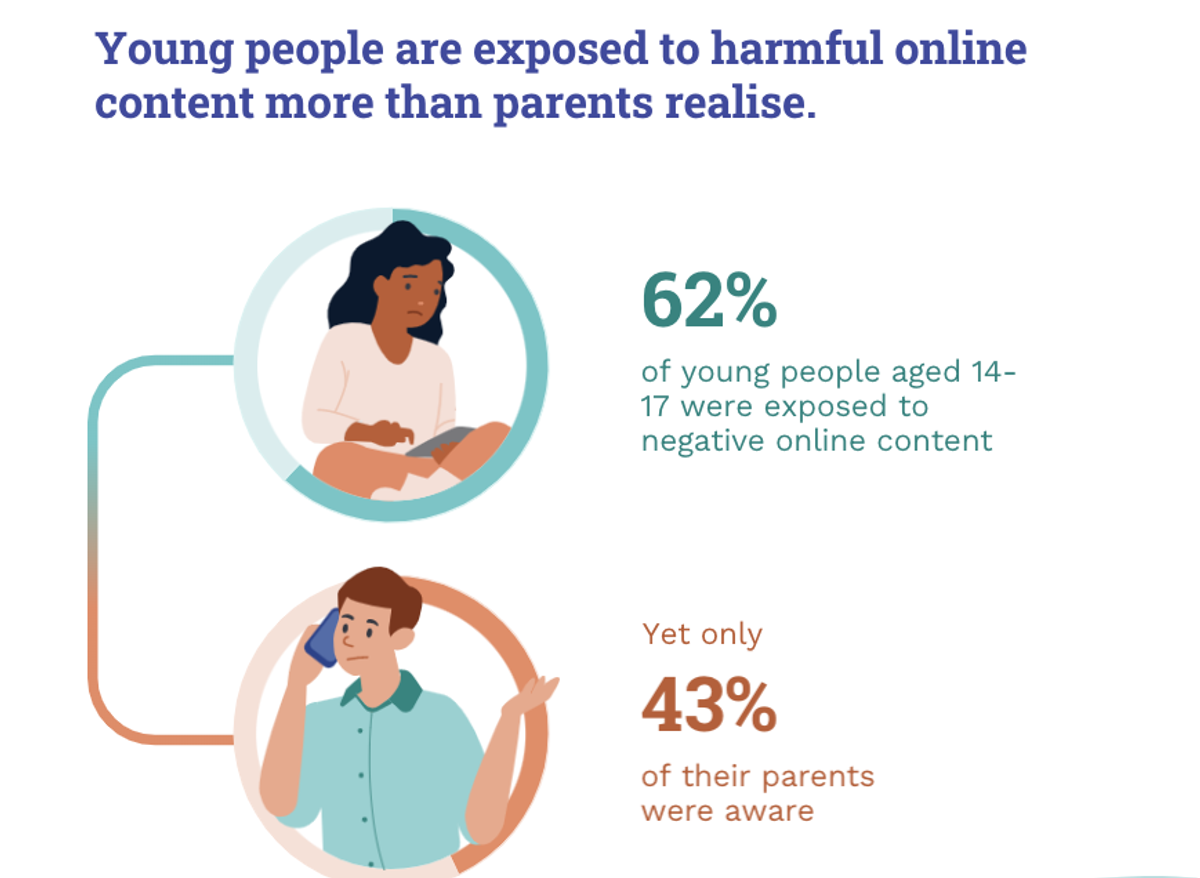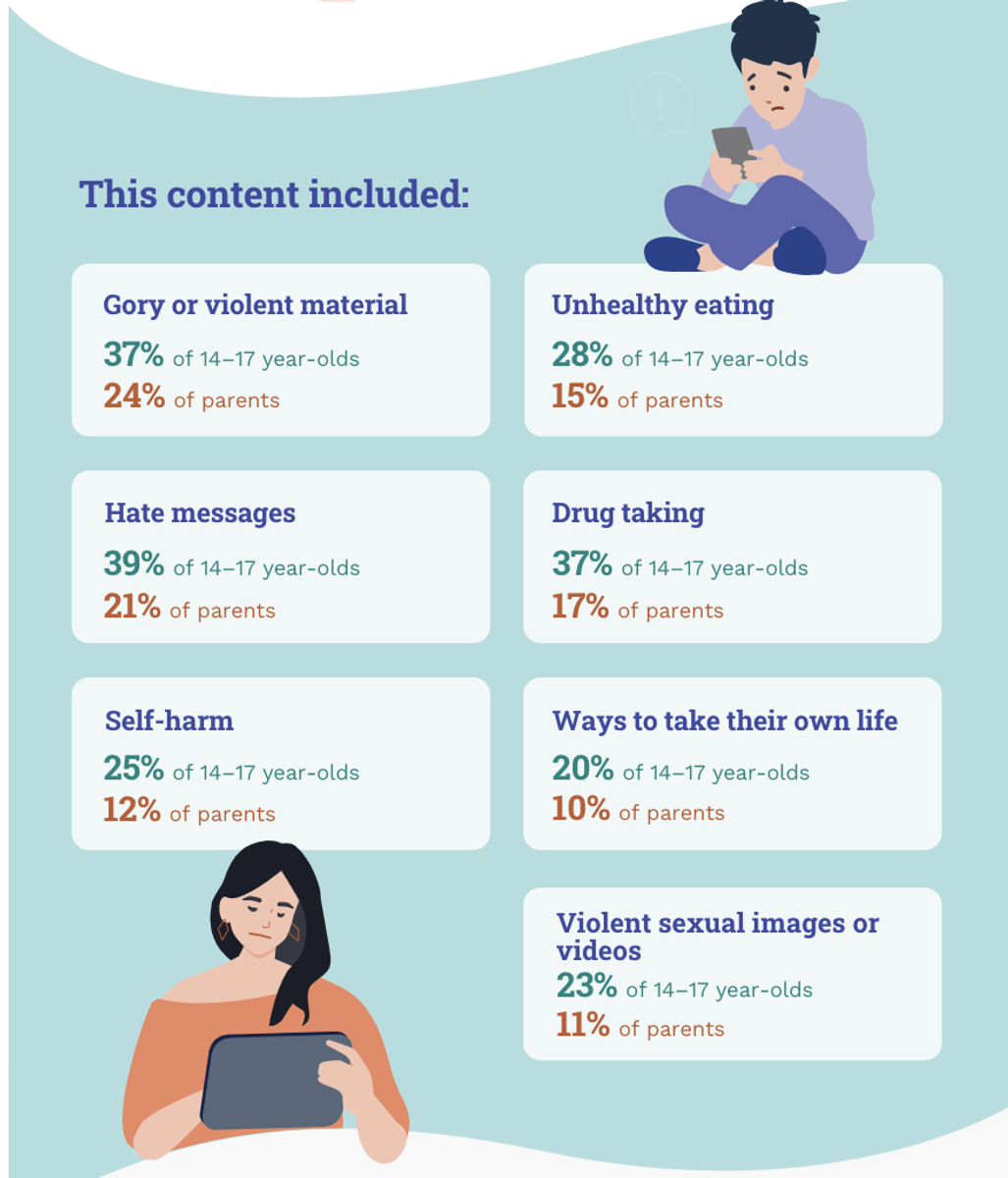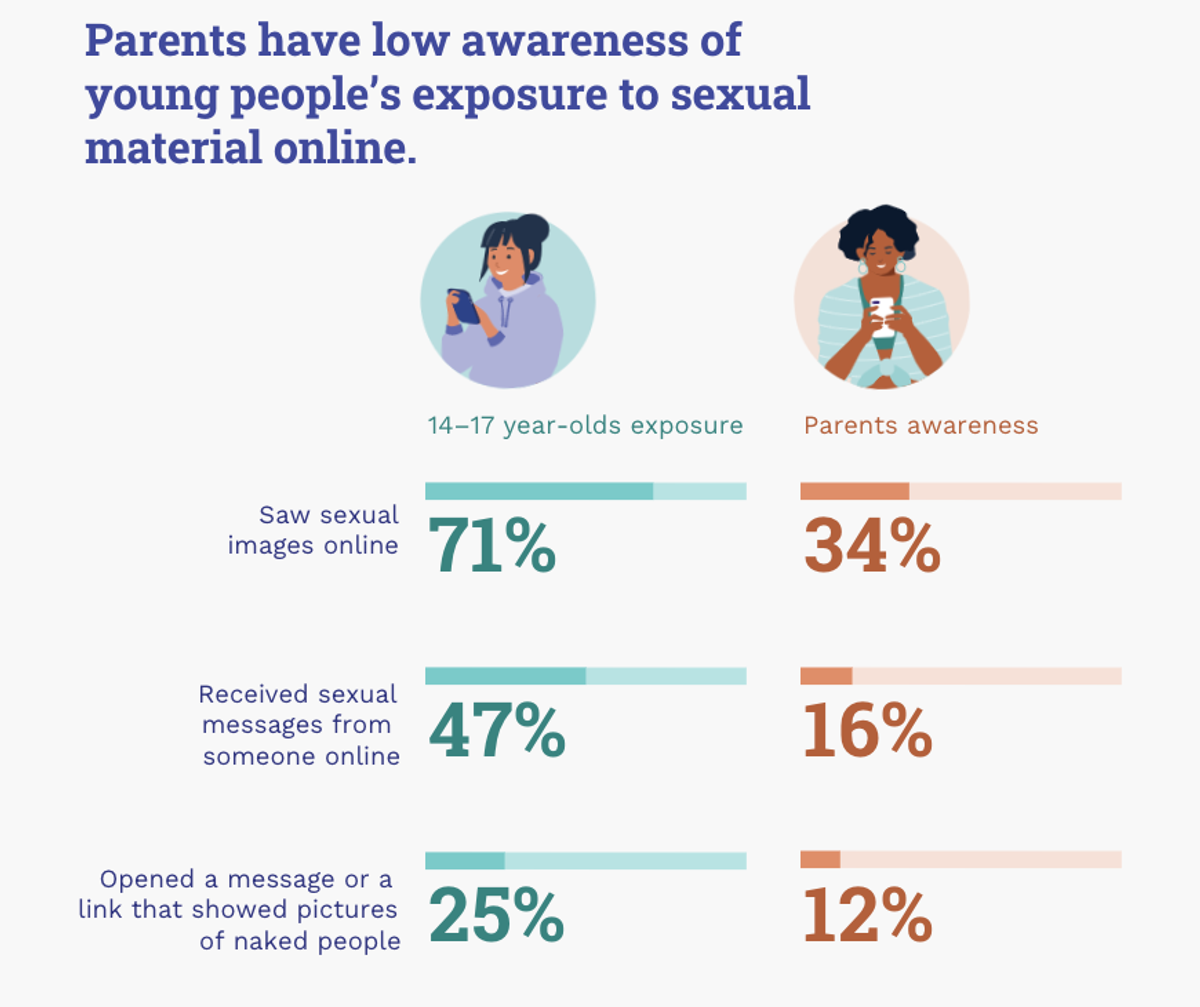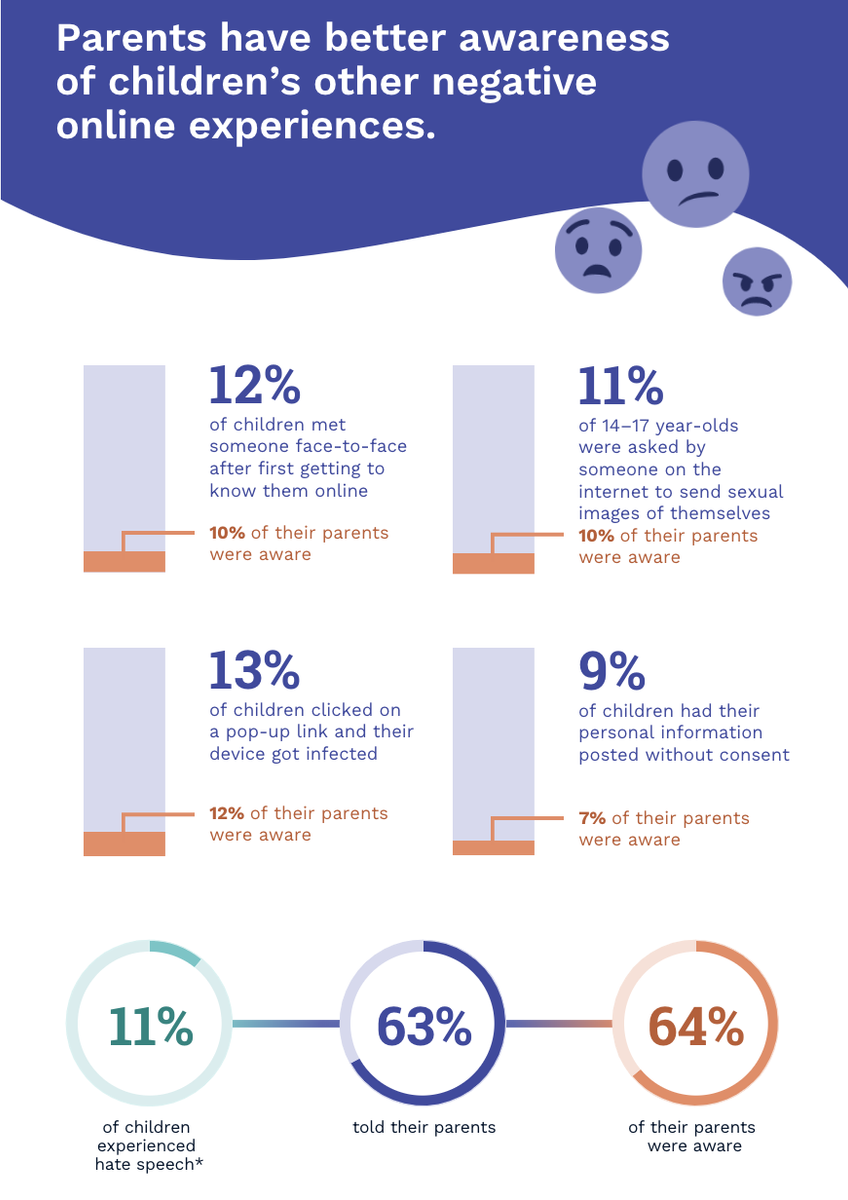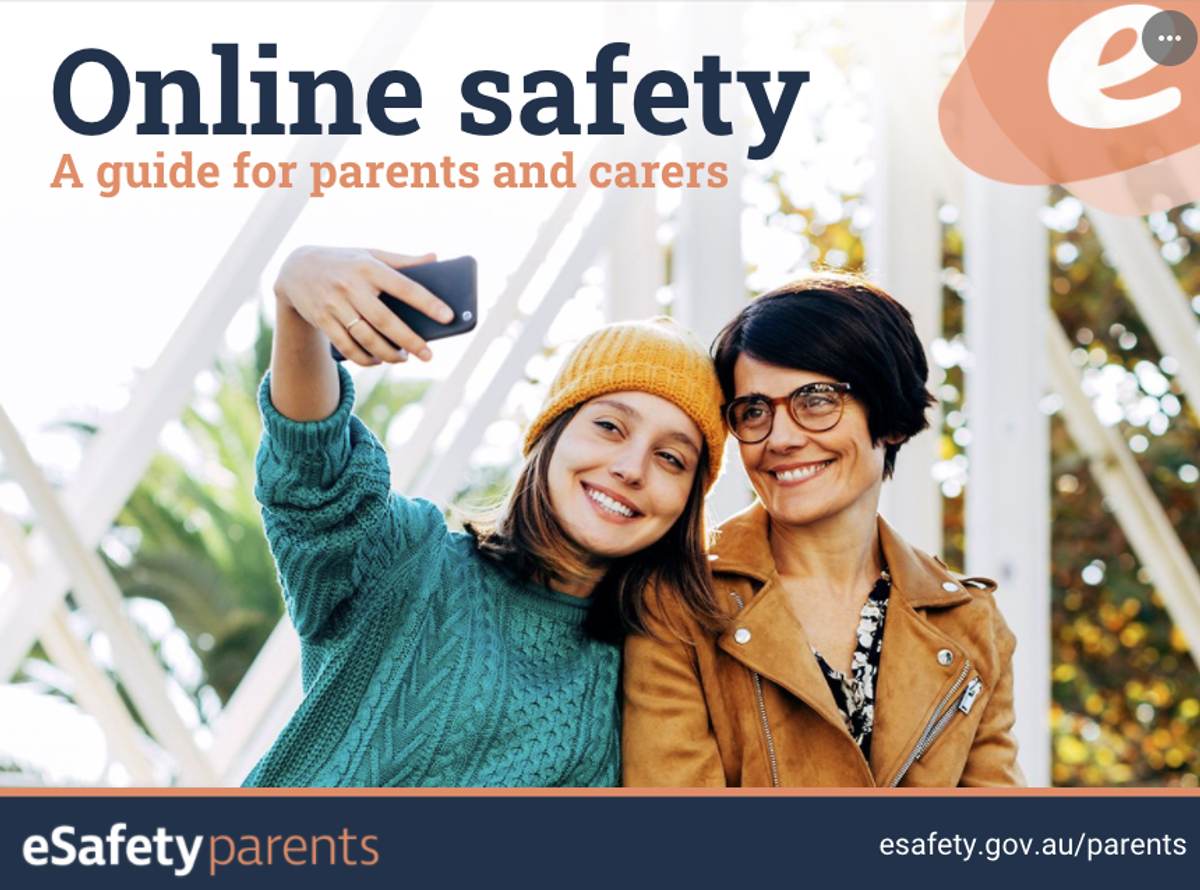Parenting Page

Safer Internet Day for Parents
Webinar: eSafety's parent guide to helping kids thrive online
This Term 1 webinar in 2022 offers tips about how to support young people to socialise, learn and have fun online safely.
It explains how to access information, use technology safely and navigate new online platforms.
The presentation is designed for parents and carers of young people aged 5 to 12 years old.
It will cover:
- how to talk to young people about online risks on different social media platforms and games
- how to help young people develop skills to protect themselves when they are online
- where to go for help if things go wrong and how to access mental health support and information through eSafety.
2022 dates (Australian Eastern Daylight Time)
Wednesday 23 February 7.30 to 8.30 pm
Webinar: eSafety’s parent guide to cyberbullying and online drama
This Term 1 webinar will provide parents and carers with the tools to support young people to have safe and respectful online relationships. It will also offer advice about what to do when things go wrong.
It is designed for parents and carers of young people aged 11 to 18 years old.
It will cover:
- starting conversations with your child about their online friendships and positive ways to deal with changing relationships
- understanding the rights, laws and community expectations that govern social media use
- where to seek help if your child is involved in a cyberbullying incident.
2022 dates (Australian Eastern Daylight Time)
Thursday 10 March 12.30 to 1.30 pm
Tuesday 15 March 12.30 to 1.30 pm
Wednesday 23 March 7.30 to 8.30 pm
Mind the Gap- Read the latest research
https://www.esafety.gov.au/research/mind-gap
Digital parenting needs to evolve as children grow so that young people are well prepared to respond safely to harmful online content.
Parents have an important role to play in children’s online lives and evidence shows that their awareness and digital involvement has increased since 2016. But there are still some significant gaps – especially in relation to children’s exposure to potentially harmful online content.
This research explores the opportunities and risks that the internet presents for children in Australia. More than 3,500 young people aged 8 to 17, and their parents, were surveyed during August and September 2021.
The research examined:
- children’s online lives
- what parents know – and don’t know – about their children’s online experiences
- digital parenting practices and the effects on children’s internet use.
It was conducted as part of eSafety's work with Global Kids Online - an international project which creates cross-national evidence about children’s online risks and opportunities.
Results will be used by eSafety to further develop age appropriate resources and messaging for parents and carers to use with their children. This will help them to maximise the benefits of online activities while minimising harm.
Summary of key findings
- Young people engage in a wide range of online activities and experience many benefits from using the internet:
- Many children have gone online for health information, searching for material about mental, physical and sexual health.
- A third of children looked for emotional support online from friends and/or mental health support services.
- Significant numbers of children have had negative online experiences:
- Close to half of the children surveyed were treated in a hurtful or nasty way online in the past year.
- A quarter of the children had themselves treated someone in a hurtful or nasty way online.
- One in ten children have been the target of hate speech online.
- Almost all children did something in response to a negative online experience – most commonly telling their parents.
- Exposure to negative online content and sexual content is prevalent among young people aged 14 to 17 years.
- Many parents underestimate the prevalence of children’s negative online experiences, and many are not aware of their teens’ exposure to negative content or sexual material online.
- Children with restrictive parents are less likely to be exposed to harmful content, but they are also much less likely to engage in supportive and protective online activities.
Need Help with Devices and the Internet at Home?
The eSafety Commissioner website helps Australians to have safer, more positive experiences online. The site has a parent page that provides advice for parents and carers to help children have safe experiences online. eSafety Commissioner.
Please contact your child's teacher should you need further support.


